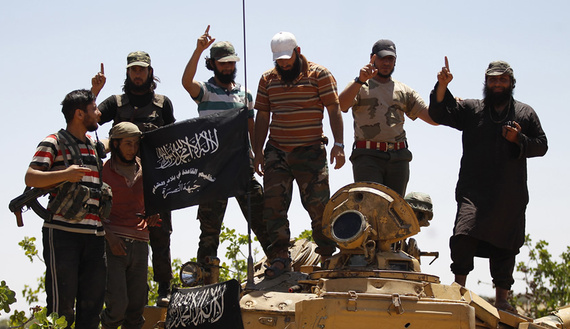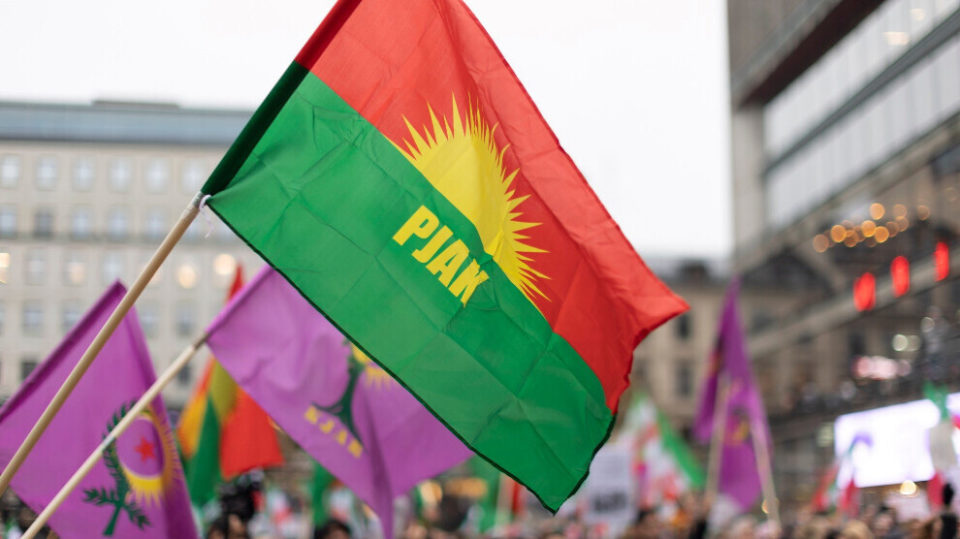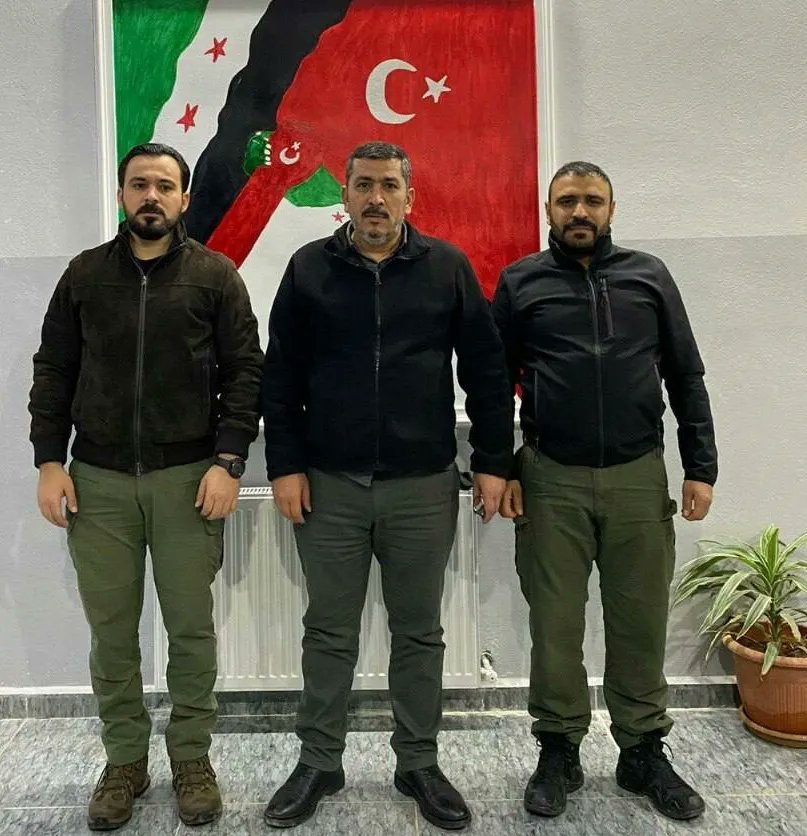
Why al-Nusra’s ‘Break’ With al-Qaeda Poses a Problem for the West
Why al-Nusra’s ‘Break’ With al-Qaeda Poses a Problem for the West
In July, the leader of Syrian Islamist militant group Jabhat al-Nusra, Abu Mohammed al-Julani, announced his faction had changed its name to Jabhat Fatah al-Sham (JFS) and was amicably splitting from al-Qaeda (Hurriyet Daily News, July 29).
The move is genuine, insofar as al-Qaeda has ceded formal organizational control of the group. However, Jahbat Fatah al-Sham (JFS) remains ideologically aligned with al-Qaeda, and the West has taken little notice of the move. This split and rebranding has made JFS more palatable to potential rebel partners in Syria, and that in turn has the potential to make the situation in Syria more difficult for the West.
Conscious Uncoupling
Al-Nusra was founded in 2011, as the Syrian civil war began, by al-Qaeda’s central command to overthrow President Bashar al-Assad’s government and exploit the emerging chaos to implement its brand of sharia (Islamic law) wherever possible in Syria. Since then, it has been a major non-state armed group and a key component in the rebel movement, despite being targeted by international forces as a terrorist organization.
On July 28, in a video disseminated by the al-Jazeera news channel, al-Julani announced that the newly named JFS was no longer affiliated with any external entity. Flanked by senior deputies and wearing military fatigues, he talked about jihad and the establishment of sharia, but purely within the context of al-Sham, the Arabic term for the Levant. This formal dissociation with al-Qaeda was authorized by Ayman al-Zawahiri, the al-Qaeda leader (Middle East Eye, July 28). In the long-term, however, it is likely that JFS will formally re-join the group’s global network.
JFS’ operations are concentrated in the northern Syrian city of Aleppo and the governorate of Idlib. It has also launched kinetic operations abroad – in January 2014, it claimed responsibility for a vehicle-borne IED attack in the Lebanese capital Beirut (The Daily Star, January 21, 2014). Although its precise force levels are difficult to verify, an offer by the UN special envoy for Syria to escort 900 JFS fighters out of the northern city of Aleppo suggests it possesses a large fighting force (Middle East Eye, October 11). JFS’s contingent likely represents approximately 10 percent of rebel forces in Aleppo, which is roughly analogous to its national strength.
International Impact
Thus far, foreign powers have declined to use the group’s new name. The U.S. State Department, as of October 11, continues to refer to JFS as al-Nusra (Daily Press Briefing, U.S. Department of State, October 2). Russia also continues to publicly refer to JFS by its former name (BBC, September 30).
Rhetoric aside, international military action against JFS continues apace. In October, the United States killed a senior JFS commander (al-Jazeera, October 4). Russia, meanwhile, has maintained its operational tempo against JFS (AFP, October 10). The July 28 announcement, therefore, has not led to any marked change in JFS’s perception by Russia or the United States. The perceived links between JFS and al-Qaeda are too deeply embedded in both countries’ foreign affairs and defense establishments to be undone by any single speech.
However, it is unlikely al-Julani expected anything more. Rather, the dissociation with al-Qaeda will give diplomatic cover to sympathetic actors, such as elements within the Qatari state, to continue to provide some support for JFS without the baggage of association with an al-Qaeda affiliate. The links between Qatar and JFS, although murky, are extensive. It was Qatari mediation that freed three Spanish journalists kidnapped by al-Nusra in May this year (Alaraby, May 8). Qatari involvement was also crucial in organizing al-Nusra’s release of 13 Christian nuns on March 10, 2014 (al-Monitor, March 2014). Both show there is some degree of interaction between Doha and JFS, and the rebranding will likely allow Qatar and other sympathetic actors to escalate their support.
Domestic Implications
Foreign capitals, however, were not al-Julani’s primary audience. Instead, the announcement was aimed at the commanders of the other Syrian rebel groups. Only days after the announcement, JFS participated alongside a multiplicity of other rebel factions, in a dramatic military push that attempted to break the Syrian regime’s siege of east Aleppo (al-Monitor, August 2). Although the advance faltered and the Syrian army responded with a vicious counter-offensive, the message was clear – JFS had positioned itself firmly in the mainstream rebel opposition to al-Assad.
The group’s new standing within the rebel community is apparent. In October 2016, the jihadist group Jund al-Aqsa, under attack by various other Islamist groups for a suspected alliance with Islamic State (IS), pledged loyalty to JFS (al-Alarabiya, October 9). Jund al-Aqsa calculated that the newfound “respectability” of JFS, along with its combat capability, would protect it from further attack by other Islamist groups. Whether this strategy will prove effective is less important than the fact its high command perceived the move as a legitimate course of action.
JFS’s dissociation with al-Qaeda, then, is a play for an improved domestic position among the Syrian rebel community, one which appears to be paying off. By representing itself as an organization entirely focused on Syria, rather than an affiliate of a global network, JFS can market itself more effectively to other rebel forces, cementing its position in the center of the anti-Assad movement.
JFS’s symbolic break with al-Qaeda has had some minor manpower consequences. Local media sources have reported a number of defections from JFS to IS over the issue. Certainly, extreme hardline Islamist fighters might continue to withdraw support for JFS out of theological distaste for its now more moderate image.
However, such defections are likely to remain small-scale, and it will not reduce JFS’s capability. Instead they demonstrate the seriousness with which the rebranding is being taken, both within JFS and the wider rebel movement (al-Monitor, August 5).
The move also reflects al-Qaeda’s adaptability. Al-Qaeda’s ability to reorient itself based on its operational interests in advancing the cause of militant Islamism, rather than rigid hierarchical principals, is to the network’s benefit. Furthermore, al-Qaeda’s actions will be perceived positively within Syria as an act of generous pragmatism. Rebel forces will be more sympathetic to al-Qaeda, should, as seems likely, it formally return to Syria. There will likely be little to stop it re-assimilating JFS when the operational and strategic situation in Syria is more favorable.
Increased Complexity of Syria Conflict
By giving itself nominal space from al-Qaeda, JFS is entrenching its domestic position, and Washington must respond more carefully to the group as a result.
Despite the dissociation, JFS has not changed its ideology and there has been no shift in the group’s use of political violence – it remains a terrorist group. The rebranding has, however, had some appeal to groups such as Jund al-Aqsa. While Jund al-Aqsa is, likewise, a terrorist group, the concern is that JFS may grow in appeal to other rebels, especially as efforts in Syria focus on Aleppo.
Any attempt to scale-back anti-JFS operations would likely be met by a backlash in Congress, and lay the White House open to accusations it was being hoodwinked by jihadist propaganda. But if more palatable rebel groups intensify military and logistical cooperation with JFS, it will become increasingly difficult to strike at the organization without alienating partners on-the-ground.
At the same time, Washington must be weary that if (or when) JFS formally returns to the al-Qaeda fold, it will be in a stronger position than ever to advance the group’s violent agenda.


